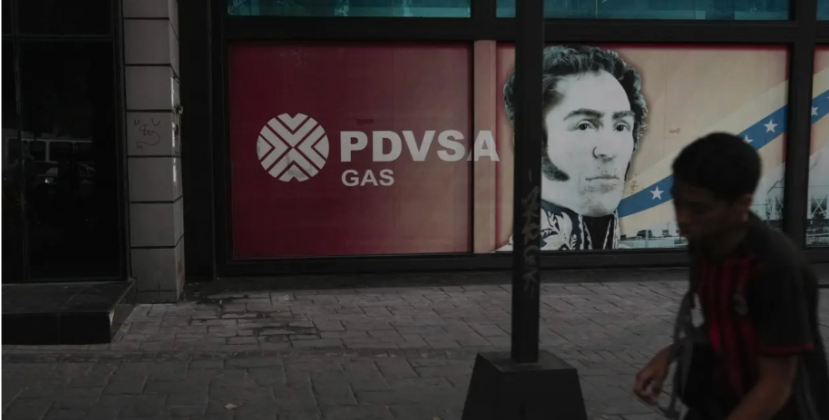U.S. Lifts Sanctions Against Venezuela In a Bid to Ensure 2024 Elections
Venezuela’s leader Nicolas Maduro at Miraflores presidential palace in Caracas. Source: AP Photos/Ariana Cubillos
On Wednesday, Oct. 18, the Biden administration announced the softening of its sanction on oil, gas, and gold exports from Venezuela. The deal came one day after Venezuela’s incumbent leadership met with its opposition and agreed to hold democratic presidential elections in 2024.
The meeting between the rival political parties took place in Barbados, and was primarily mediated by Norwegian diplomats. Representatives of the United States, Europe, and various Latin American nations were also present at the conference. The agreement reached therein permits international observers to oversee the electoral process, and revokes President Nicolás Maduro's prior restriction on opposition candidates from holding public office.
The United States, the European Union, the United Kingdom, and Canada released a joint statement on Oct. 17, 2023 reaffirming that the agreement “represents a necessary step in the continuation of an inclusive dialogue process and the restoration of democracy in Venezuela.” The countries expressed their hope that the consensus will lead to “fair and competitive elections and a return to economic stability and security.”
The U.S. Department of the Treasury’s Office of Foreign Assets Control issued a 6 month general license authorizing financial transactions with Venezuela. The permit will only be renewed if President Maduro abides to the conditions set forth for the 2024 election. The Treasury Department clarified in a statement that the U.S. government “retains the authority to rescind authorizations should the representatives of Maduro fail to follow through on their commitments.”
According to the new directives, both domestic and international companies will now have permission to engage in the production and export of Venezuelan oil and gas, as well as establish business relationships with the state-owned energy entity, Petróleos de Venezuela. Transactions involving Russian oil companies in Venezuela will continue to be prohibited.
The South American country possesses the world’s largest reserves of crude oil. Nevertheless, the interplay between the government's mismanagement and U.S. sanctions has severely impaired the state-owned oil company, PDVSA. That being said, American interest in Venezuelan reserves has been growing in the last months, and it may have reached a new peak after the recent spike in oil prices in September, which came close to breaking the symbolic $100 per barrel mark.
In the wake of Russia's full-scale invasion of Ukraine last year, Washington began actively exploring methods to bolster global oil supplies. The United States has drawn down nearly 300 million barrels from the U.S. Strategic Petroleum Reserve, in addition to taking steps to alleviate some energy-related constraints on Venezuela.
An image of Venezuelan independence fighter and hero Simon Bolivar, next to a sign of Petroleos de Venezuela, S.A, PDVSA, taken in Caracas, Venezuela. Source: AP Photos/Ariana Cubillos
However, the Biden administration has struggled to overcome the legacy of its Trump predecessor in regards to the relationship with Venezuela. In 2019, the latter recognized the country's opposition leader, Juan Guaipó, as the legitimate head of state on the grounds that Maduro's re-election the previous year had been achieved through a controversial election, granting him unchecked authority.
The Biden administration has been negotiating with Maduro's government for several months, hoping to convince the Venezuelan regime to implement democratic reforms as a quid pro quo for lifting the sanctions imposed on the oil sector. On Nov. 26, 2023, the Treasury issued a license to Chevron, enabling it to recommence limited oil production in partnership with PDVSA.
The relaxation of U.S. sanctions is unlikely to exert a substantial influence on Venezuelan oil production and exports considering the decade-long neglect in capital investment. However, Venezuelan production might see an increase of up to 200,000 barrels per day six months after the sanctions are eased.


